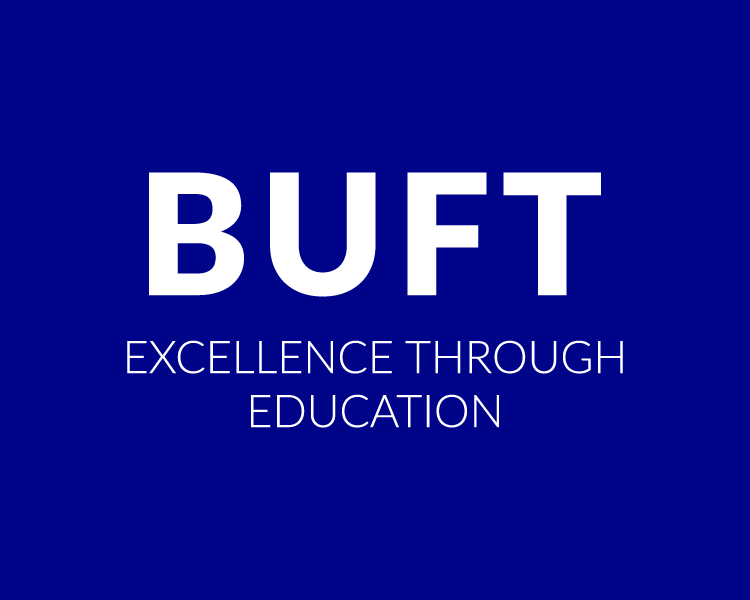
Department of
Industrial Engineering (IE)
The curriculum for the Bachelor of Science in Industrial Engineering (IE) is a fusion of Industrial Engineering and Production Engineering. It is an engineering discipline that is greatly valued internationally. The department not only focuses on the development of technical knowledge among students but also puts a great effort to make them more expressive and communicative to improve their competence over business graduates.
IE is a specialized branch of engineering which applies mathematics to different aspects of industrial and business processes. The knowledge of Industrial Engineering can be used to increase efficiency and productivity of an industry. IE uses modern technology to satisfactorily manage resources of all kinds, including human beings, around the world. IE tools are very helpful to design and analyze complex systems that integrate technical, economic, and social factors for all types of organizations.
The Industrial Engineering side of this discipline mainly focuses on Analytics and Data Science, Economic and Financial Systems, Operations Research, Optimization techniques, Quality Control techniques, Supply Chain management, Industrial Business Management, Operations Management and some other useful material management tools.
The other side of this engineering discipline is that the Industrial Engineering focuses on various Modern Manufacturing Techniques used by the industries all over the world. The knowledge of manufacturing processes is directly applicable for the automation of an industry.
The Department of Industrial Engineering arranges special Industrial Attachment Programs for the students which help them to gather real life knowledge. These training programs not only make the students prepared for their job life but also helps to apply their gathered knowledge in industry.
The graduates of IE discipline have huge job opportunities both in Bangladesh and abroad. They have the opportunities to start their career in different industrial sectors such as the Garments Industry, Pharmaceutical Industry, Automobile Industry, Food Industry, Electronics Industry and so on.
Vision of the department
To make an esteemed place among the leading institutions of tertiary education and quality research in the field of Industrial Engineering globally.
Mission Statement
| M1: | To offer quality education in the field of Industrial Engineering to create qualified and responsible graduates to meet the current challenges and future needs of the country and beyond. |
| M2: | To follow state of the art curriculum which emphasizes needs of the stakeholders in a way that the IE graduates will be able to exhibit their competency at the global level. |
| M3: | To practice quality research along with developing communication, reasoning, critical analysis, creativity, team work, and problem-solving skills of the IE graduates. |
Values of IE Department:
- Excellence: Department of Industrial Engineering has core values for operations and mission of excellence.
- Innovation and Empowerment: Values include innovation, academic and professional empowerment, research and consultation, community engagement, leadership in scientific and technical knowledge application.
- People-Centered Culture: The department promotes a people-centered culture that values diversity, personal development, creativity, integrity, and responsibility.
- Human Quality: The department instills students with humanity, discipline, morality, and quality to become engineers with critical reasoning, systems thinking, and strong quantitative analysis skills.
- Professional Ethics and Integrity: The values further extend to continuous improvement, professional ethics awareness, respect for social values, environmental consciousness, and a focus on producing value.
Program of Study
B.Sc. in Industrial Engineering (IE) is a four years course designed to provide the students with a sound foundation in the technology and Industrial Engineering. To acquire a B.Sc. degree a student has to earn 150.25 credits from a combination of courses offered by the university. Industrial Engineering is an engineering fraternity that is greatly valued internationally. It has been contributing enormously to the improvement of productivity and operations as well as operating conditions of numerous organizations all over the world.
Education in IE incorporates not only basic engineering and technical subjects, but also other relevant fields of study such as humanities, accounting, presentation skills, creativity, teamwork and business and management skills. In present day industries, these skills are deemed really essential to make an engineer apt to face the challenges of practical scenarios. In most of the cases, an engineering job is not merely an engineering job; it is interlinked with multifaceted variables. An engineer working in a practical situation needs to be well alerting, pro-active and fully aware of the surrounding contingencies. That is why, education in IE can be considered as an embodiment of balanced education.
Subjects Taught
Category wise courses and credits summary
| # | Categories | Credits | Percentage |
|---|---|---|---|
| 1 | Major Subject | 82.50 | 54.91 |
| 2 | Deepening Specializations | 6.00 | 03.99 |
| 3 | Interdisciplinary Minors | 22.75 | 15.14 |
| 4 | General Electives | 39.00 | 25.96 |
| Total | 150.25 | 100.00 | |
Increased industry interaction for students through classroom lectures, Quizzes, laboratory sessions, projects, factory visits, Industrial Attachment and part transaction in industry environment is the focus of the structured OBE curriculum. The contact hours are regulated to around 24 hours per week, giving increased time for theory, sessional, teamwork and self-study to the students. The degree program is completed with at least 30 working days Industrial Attachment which the students do in an industry or a company.
B.Sc. in IE (Code: 651)
B.Sc. in Industrial Engineering is a four-year program designed to provide the students with a sound foundation in the technology and industrial engineering. Students opting to acquire a B.Sc. degree will have to earn a total of 150.25 credits.
Profile of the program
- Name of the Degree: Bachelor of Science in Industrial Engineering, abbreviated as B.Sc. in IE
- No. of credits: 150.25
- Language of Instruction: English
- Courses Start: Spring (January) & Fall (July) each year
- Standard time to attain the Degree: Four years (eight semesters, six months each)
- Minimum grade to attain the Degree: 2.50 in a scale of 4.00
Industrial Engineering is an engineering fraternity that is greatly valued internationally. It has been contributing enormously to the improvement of productivity and operations as well as operating conditions of numerous organizations all over the world.
Education in IE incorporates not only basic engineering and technical subjects, but also other relevant fields of study such as humanities, accounting, presentation skills, creativity, team-work and business and management skills. In present day industries, these skills are deemed really essential to make an engineer apt to face the challenges of practical scenarios.
In most cases, an engineering job is not merely an engineering job; it is interlinked with multifaceted variables. An engineer working in a practical situation needs to be well alerting, pro-active and fully aware of the surrounding contingencies. That is why, education in IE can be considered as an embodiment of balanced education.
Accreditation of the Program
The program offered by the Department of Industrial Engineering has been designed as per the clear instruction of the University Grants Commission (UGC) of Bangladesh, accordingly has been verified and approved by the proper authority nominated by the UGC.
Core courses (extract)
Introduction to Industrial Engineering
Managerial Accounting
Machine Shop Practice
Manufacturing Processes
Fundamentals of Economics
Probability and Statistics
Mechanical Drawing
Numerical Analysis
Computer Graphics
Measurement, Instrumentation and Control
Product Design and Development
Operation Research
Engineering Economics
Measurement, Instrumentation and Control Sessional
Product Design and Development Sessional
Material Handling and Maintenance Management
Quality Management
Machines Tools and Machining
Production Planning and Control
Operations Management
Material Handling and Maintenance Management Sessional
Quality Management Sessional
Machines Tools and Machining Sessional
Business Communication Seminar
Work System Design & Safety
CAD/CAM
Logistics and Supply Chain Management
Computer Integrated Manufacturing
Work System Design & Safety Sessional
CAD/CAM Sessional
Project and Thesis
Robotics and Computer Controlled Machines
Simulation
Industrial and Business Management
Simulation Sessional
Project and Thesis
Allied Engineering (extract)
Basic Electrical Engineering
Programming and Data Structure
Electrical Engineering Sessional
Programming and Data Structure Sessional
Thermodynamics
Electrical Machines
Electrical Machines Sessional
Thermodynamics Sessional
Mechanics of Materials
Engineering Materials
Mechanics of Materials Sessional
Engineering Materials Sessional
Fluid Mechanics and Machinery
Fluid Mechanics and Machinery Sessional
Business & Humanities (extract)
Critical Thinking and Communication
English Language Sessional
Engineering Ethics
Bangladesh Studies
Sciences (extract)
Physics
Chemistry
Mathematics

